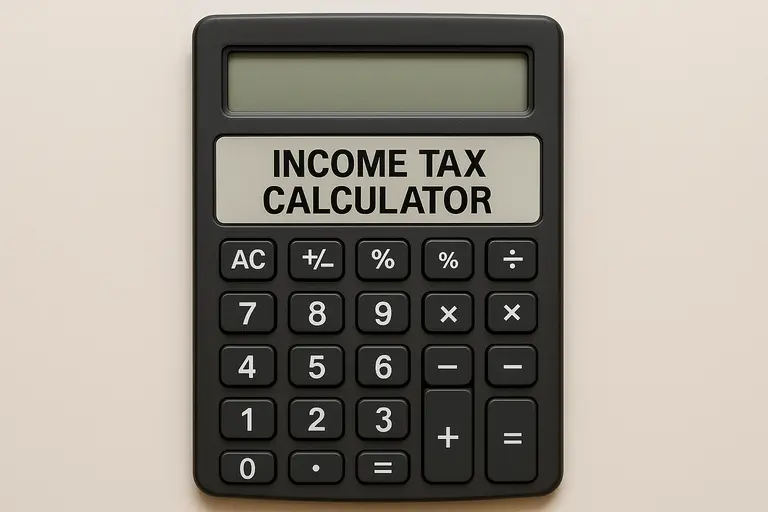✅ Top 3 Key Takeaways
- Income taxes Malaysia for individuals are calculated based on tax residency status, chargeable income after allowable reliefs, and progressive tax brackets ranging from 0% to 30%
- For SMEs, income tax is calculated based on annual revenue, paid-up capital, and tax classification, with a 17% preferential rate on the first RM150,000 and 24% thereafter, subject to eligibility.
- Procheck Faculty Sdn Bhd helps individuals and SMEs accurately calculate, file, and optimize their income taxes Malaysia through strategic planning, proper documentation, and full regulatory compliance.
How Are Income Taxes Malaysia Calculated for Individuals and SMEs?
Income taxes Malaysia are calculated based on a structured and tiered system that varies between individuals and small to medium enterprises (SMEs).
Whether you’re a salaried employee, a freelancer, or a business owner, understanding how tax is calculated helps you stay compliant, avoid penalties, and maximize allowable reliefs.
In Malaysia, individual income tax is computed on chargeable income after deducting all eligible tax reliefs and rebates.
The Inland Revenue Board of Malaysia (LHDN) uses a progressive tax rate, which ranges from 0% to 30%, depending on your taxable income and residency status.
On the other hand, SMEs and companies are taxed based on annual revenue and business classification, with special incentives offered for qualifying small and medium businesses.
Simplify Your Tax Management Today!
Partner with Procheck today to unlock your business’s full potential. Our team of experts is ready to help you navigate taxation challenges and achieve your strategic goals.
Request a Free Consultation
Get started with a no-obligation consultation to discover how we can transform your financial operations.
But here’s the challenge: the process isn’t always straightforward.
Many people are unaware of the different tax reliefs they can claim, the correct filing deadlines, or what happens when a declaration is missed.
For SMEs, understanding whether you’re eligible for the reduced 17% tax rate or navigating exemptions like reinvestment allowances adds to the complexity.
That’s where Procheck Faculty Sdn Bhd comes in.
With over 25 years of experience in tax compliance, corporate services, and accounting advisory, the firm has helped countless individuals and businesses streamline their tax processes and stay ahead of regulatory changes.
Whether it’s filing personal income tax, managing payroll deductions, or handling SME tax planning, Procheck offers strategic insights backed by professional care.
In this blog, we’ll break down the 7 clear rules that guide how income taxes Malaysia are calculated—so you can plan better, pay smarter, and grow stronger with confidence.
1. What Is the Income Tax System for Individuals in Malaysia?

Malaysia’s income tax system for individuals follows a progressive structure, meaning the more you earn, the higher the percentage of tax you pay.
This applies to both resident and non-resident individuals, but residents enjoy various reliefs and lower tax brackets.
Key Elements:
- Resident vs. Non-Resident Status: Tax rates and reliefs differ.
- Chargeable Income = Total Income – Tax Reliefs
- Tax Rates: Ranging from 0% to 30%
Residents can enjoy over 20 types of tax reliefs, such as for EPF, SOCSO, insurance premiums, education, and medical expenses.
“Perkhidmatan Setiausaha Syarikat dari Procheck sangat profesional dan cekap. Mereka membantu saya menguruskan dokumentasi syarikat dengan teliti dan memastikan pematuhan undang-undang.”
Noor Ariffshah
2. How Are Resident Individuals’ Income Taxes Calculated?

Calculating your tax is about knowing what to subtract from your income legally.
The LHDN (Inland Revenue Board) defines several personal reliefs and deductions you may qualify for.
Calculation Formula:
Chargeable Income = Total Income – Approved Deductions and Reliefs
Common Reliefs:
- RM9,000 for individual
- RM4,000 for spouse (if applicable)
- RM8,000 for children in higher education
- RM3,000 for lifestyle (books, gadgets, gym)
By submitting complete records, residents can reduce their effective tax burden significantly.
3.Step-by-Step Guide: Filing Your Personal Income Tax in Malaysia
What You Need:
- EA Form from employer
- Tax relief receipts
- Bank details for refund
- MyTax or e-Filing access
Filing Timeline:
- Salaried individuals: Due by April 30
- Self-employed individuals: Due by June 30
e-Filing Tips:
- Log in to MyTax Portal
- Use “e-BE” for residents without business income
- Use “e-B” for business income holders
Double-check every figure and attachment before submission. Errors can delay your refund or trigger an audit.
4. What Is the Income Tax System for SMEs & Companies in Malaysia?
SMEs are defined by annual sales turnover and number of full-time employees.
The government offers special tax rates and incentives to encourage SME growth.
SME Criteria (for preferential tax rate):
- Paid-up capital ≤ RM2.5 million
- Gross income ≤ RM50 million
- Not part of a group with large capital
Corporate Tax Rates:
- 17% for first RM150,000
- 24% for income exceeding RM150,000
Larger companies are taxed flat at 24%.
“Provide service account, tax, audit, company secretary.”
Hans Empire
5. Income Tax Malaysia: Corporate & SME Rates
Proper tax classification saves money. Many SMEs overlook this.
Examples:
- A local café making RM300,000/year qualifies for 17% rate on first RM150,000 and 24% on the balance.
- A software firm with RM2 million turnover and 10 staff may also qualify if not part of a larger group.
Tax planning is crucial for:
- Budgeting
- Forecasting
- Preventing overpayment
Procheck provides Accounting Advisory Services including:
- Risk analysis
- Financial statement review
- Internal control setup
6. Available Tax Incentives & Exemptions for SMEs and Individuals
Malaysia offers many strategic incentives to reduce tax burden.
For Individuals:
- Tax relief on EPF & SOCSO
- Childcare reliefs
- Education and lifestyle claims
For SMEs:
- Reinvestment Allowance
- Pioneer Status (for manufacturing, green tech)
- Automation Equipment Capital Allowance
Working with a firm like Procheck ensures you claim all eligible reliefs.
7. Key Filing Deadlines and Compliance Requirements
Understanding deadlines helps prevent unnecessary penalties.
Malaysia Income Tax Filing Deadlines:
- Individuals: April 30 (without business), June 30 (with business)
- Companies: 7 months after end of financial year
Penalties:
- Late filing: 10% penalty on tax payable
- Late payment: Additional 5% after 60 days
Procheck Support:
- Tax calendar reminders
- Accurate calculation and submission
Audit readiness & risk mitigation
Understanding how income taxes Malaysia are calculated for individuals and SMEs is not just about compliance—it’s a strategic move for your financial well-being.
From identifying eligible reliefs to applying the correct tax rates and meeting critical deadlines, each step plays a vital role in keeping you or your business on track.
Whether you’re managing personal income or overseeing a company’s tax obligations, being well-informed is key to avoiding costly mistakes.
If you’re looking for professional help with filing, planning, or optimizing your taxes, Procheck Faculty Sdn Bhd is here to support you.
With over 25 years of experience, our tax services are designed to simplify compliance and maximize your tax efficiency—no matter your industry or business size.




Explore our full range of tax services here.
Let us help you turn tax complexity into business clarity.
Frequently Asked Questions (FAQ)
1. How are income taxes Malaysia calculated for individuals?
Income taxes Malaysia for individuals are calculated using a progressive rate structure based on your chargeable income after deducting tax reliefs. Residents are taxed at rates from 0% to 30%, while non-residents are typically taxed at a flat 30% without reliefs.
2. What tax reliefs are available for income taxes Malaysia?
Malaysia offers various tax reliefs to reduce your chargeable income, including:
- RM9,000 personal relief
- RM4,000 spouse relief
- RM3,000 for lifestyle (books, gadgets)
- EPF and SOCSO contributions
These reliefs help lower the total income taxes Malaysia residents are required to pay.
3. How do SMEs calculate income taxes in Malaysia?
SMEs calculate income taxes Malaysia based on net profit, with eligible companies enjoying a 17% tax rate on the first RM150,000 of chargeable income and 24% thereafter. To qualify, SMEs must meet LHDN criteria related to paid-up capital and gross income.
4. When are the deadlines to file income taxes in Malaysia?
For individuals:
- April 30 (without business income)
- June 30 (with business income)
For companies:
- 7 months after the financial year-end
Meeting these deadlines is essential to avoid late penalties for income taxes in Malaysia.
5. Why should I hire a professional for income tax filing in Malaysia?
Professional firms like Procheck Faculty Sdn Bhd provide trusted tax services that ensure:
- Proper claim of reliefs
- Timely filing and payment
- Reduced audit risks
- Strategic tax planning for growth
Their expertise helps individuals and SMEs manage their income taxes in Malaysia efficiently and compliantly.








One Response